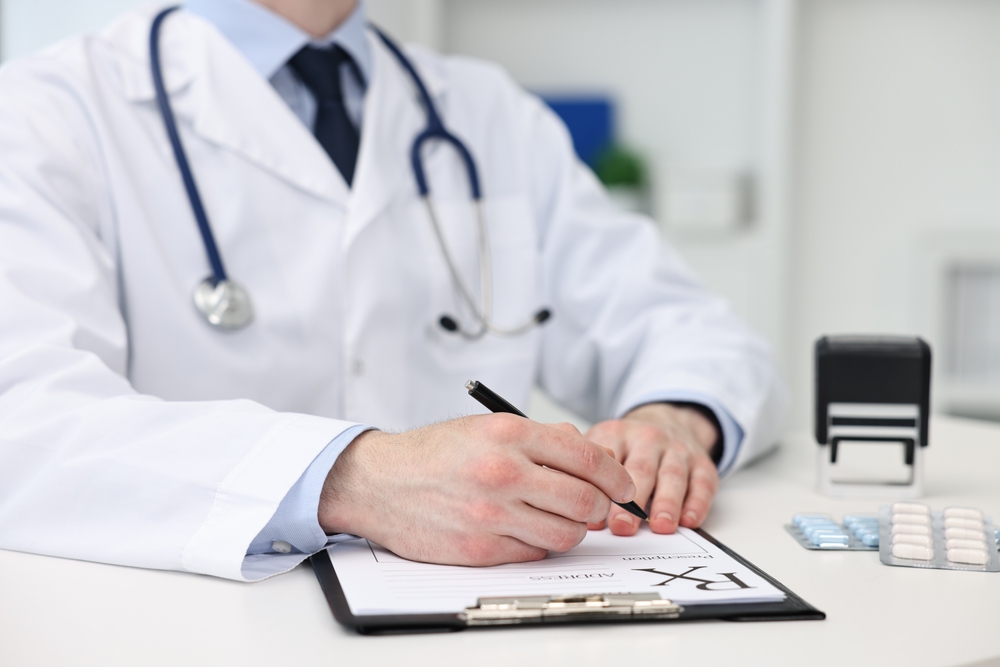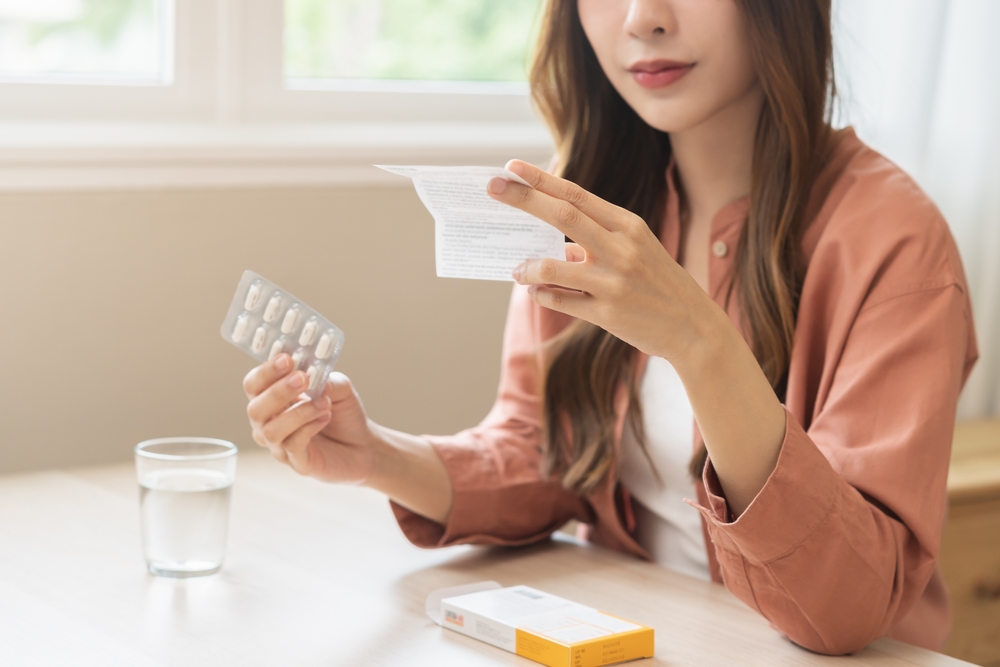Last Updated:
July 28th, 2025
Prescription Drug Detox | Withdrawal Process
Prescription drug detox is an essential starting point for anyone ready to begin recovery. There are millions of people suffering from prescription drug addiction in the UK and worldwide, but detox can be a gateway to a new life. While deciding to quit prescription drugs is a massive step, attempting it on your own can be very dangerous and is often only a short-term fix. That is why medical prescription drug detox is so important for helping you heal, recover and move forward safely.

What is prescription drug detox?
Prescription drug detox (short for conversation) technically means quitting prescription drugs so your body can clear them all out. However, in addiction recovery terms, prescription drug detox means a medically guided removal of drugs rather than quitting “cold turkey” with no professional help at home.
Prescription drug detox is an unskippable step in recovery because it resolves the physical aspect of addiction. This then allows you to move on to prescription drug rehab, which focuses on the remaining aspects like psychological dependency and personal emotional struggles.
“Medical” prescription drug detox is planned, guided and supported by a professional medical detox team. They will keep you hydrated, fed and emotionally supported as you move systematically through the stages of prescription drug withdrawal. In some cases, such as when a person is experiencing potentially dangerous complications, they may administer medication for prescription drug withdrawal. This will depend on your reaction to prescription drug detox and whether you have any other pressing health needs.
What is prescription drug withdrawal?
There are many different types of prescription drugs, and they have varying effects and side effects. However, one thing that many of the most common prescription drugs have in common is that continuous, excessive use can cause physical dependence. This is often the first stepping stone to addiction, and it means that your brain has become so used to the presence of the drugs that it relies on them to produce chemicals like serotonin, dopamine and GABA. These chemicals are crucial because they are what the brain uses for various everyday functions.
Struggling with an addiction? If you are ready to seek help, reach out to us today, and a member of our compassionate team will help you find the best option for starting your recovery journey.
The benefits of a medical prescription drug detox
Medical prescription drug detox programmes focus on safeguarding your well-being while maximising your recovery success. Here are some of the biggest benefits of treatment at a prescription drug detox centre vs home detox:
Prescription drugs you can detox from
If you stop taking prescription drugs, your brain has to take charge of those chemicals again on its own, but it takes some time to relearn how. This period of adjustment is called prescription drug withdrawal, and it causes a range of symptoms depending on the type of medication. Some of the most common symptoms of prescription drug withdrawal for different medications include:
Antidepressant withdrawal
Antidepressants such as SSRIs (Selective Serotonin Reuptake Inhibitors) can lead to withdrawal symptoms like mood swings, irritability, flu-like symptoms and a phenomenon known as “brain zaps”, which are sudden jolts likened to an electric shock in the brain.
Opioid withdrawal symptoms
Opioids, including medications like morphine, hydrocodone and oxycodone, can cause severe flu-like symptoms, intense cravings, muscle aches, excessive sweating, nausea, vomiting and sleep disturbance.
Pregabalin withdrawal
Withdrawal from Pregabalin, a prescription drug often used for nerve-related pain, can include symptoms such as anxiety, insomnia, nausea and headaches, as well as potential seizures in very severe cases.
How long does prescription drug withdrawal last?
The exact length of prescription drug withdrawal depends on what type of medication you have become dependent on.
For example, opioid withdrawal can start within 12 hours of the last dose and typically peaks within 24 to 72 hours. Opioid prescription drug withdrawal symptoms can last from a week to a month, with psychological cravings potentially persisting longer.
Antidepressants, especially SSRIs, may have a withdrawal duration that ranges from a few weeks to several months. Symptoms can appear within days of stopping the medication and gradually taper off but you may experience protracted prescription drug withdrawal symptoms that linger for months.
Withdrawal from Pregabalin can begin within one to three days after discontinuation and may last for a week to several weeks.
As well as the type of prescription drug, the severity and duration of prescription drug withdrawal symptoms can be influenced by your dosage, duration of use, your age and health and how much support you get.

Tips for a successful prescription drug detox
Prescription drug detox is a personal experience but if you approach it in the right way, it can be a transformative process. Here are some tips for making the most out of your time in prescription drug detox:
Contact us today for the best prescription drug detox options
If you’re looking for expert advice on prescription drug detox, Addiction Helper is all you need. We can talk you through the process, resolve any worries, and connect you to rehab options that are right for you. Get in touch with us today to get started.
Our compassionate team are ready and available to take your call, and guide you towards lasting the lasting addiction recovery you deserve.
Frequently Asked Questions
(Click here to see works cited)
- Durrani, Mateen. “Prescription Drug Addiction Treatment | Rehab & Detox.” Recovery Lighthouse, 15 January 2025, https://www.recoverylighthouse.com/rehab-treatment/prescription-drug/. Accessed 27 February 2025.
- Oasis Runcorn. “Prescription Drug Rehab | Detox & Addiction Treatment.” Oasis Runcorn, 19 November 2024, https://www.oasisrehab.co.uk/rehab/prescription-drug/. Accessed 27 February 2025.
- Primrose Lodge. “Prescription Drug Detox & Withdrawal.” Primrose Lodge, https://www.primroselodge.com/prescription-drug-detox/. Accessed 27 February 2025.
- UK Addiction Treatment Centres. “Prescription Drug Addiction: Understanding Abuse | UKAT.” UK Addiction Treatment Centres, 5 December 2023, https://www.ukat.co.uk/addiction/drug/prescription/. Accessed 27 February 2025.

